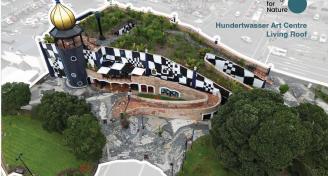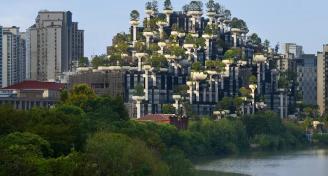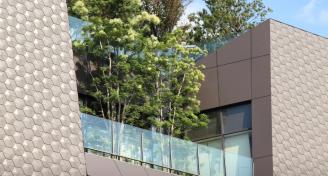How One City Plans to Fight Climate Change on Its Own

While there’s a (mostly) global consensus on the need to address climate change at the state level, municipal solutions to improving energy efficiency seem to be governed not by orthodoxy but by experimentation. To that end, one neighborhood in the northern English city of Leeds is moving toward a sustainable future with a little help from Nordic experts. Envisioned as a collaborative project between Sweden’s White Arkitekter and environmentally conscious U.K. development firm Citu, Leeds’s dedicated “Climate Innovation District” will repurpose an old industrial brownfield to create a green, open community centered around 500 of the most energy-efficient apartments and homes you’ll find anywhere on the planet.
White Arkitekter designed the mixed-use neighborhood with a Scandinavian love of efficiency in mind. All necessary services like schools, offices, and healthcare facilities will be located within easy walking or cycling distance from the more than 500 apartments and homes that will eventually be built on the site. Their plan also calls for ample green and social spaces, making it easier for residents to interact and play, all while mitigating the air quality and urban heat island issues that plague stodgier city neighborhoods. Built on the bones of apartment complexes created by White Arkitekter and local firm Ollier Smurthwaite Architects, the district’s one- to four-bedroom bedroom units will be outfitted by Citu with some of the most sustainable, carbon-neutral design elements in the world. Featuring rainwater collection, solar paneling, and green roofs on the outside as well as smart-home technology and heat recovery systems on the interior, it all “represent[s] a pioneering new approach to house building in this country, which is one of the biggest causes of carbon emissions,” according to a statement by Citu founder and managing director Chris Thompson.
With the need for carbon-consciousness a given and a housing shortage on the minds of many in the U.K., the Climate Innovation District hopes to act as a model for other communities and serve as proof of concept for Citu’s vision for the future of low-carbon housing. With early 2018 pegged as the completion date for the first units, look for this team of architects and designers to put the LEED in Leeds very soon.




